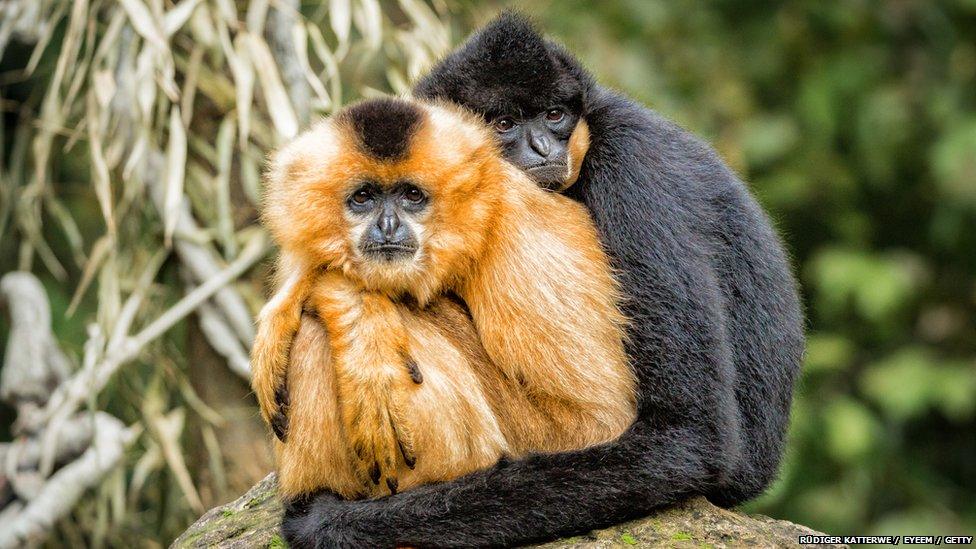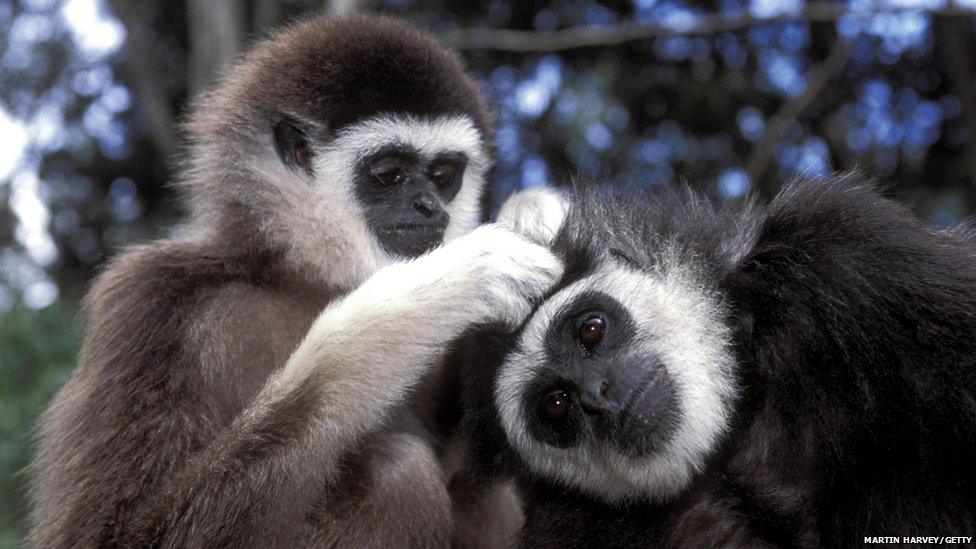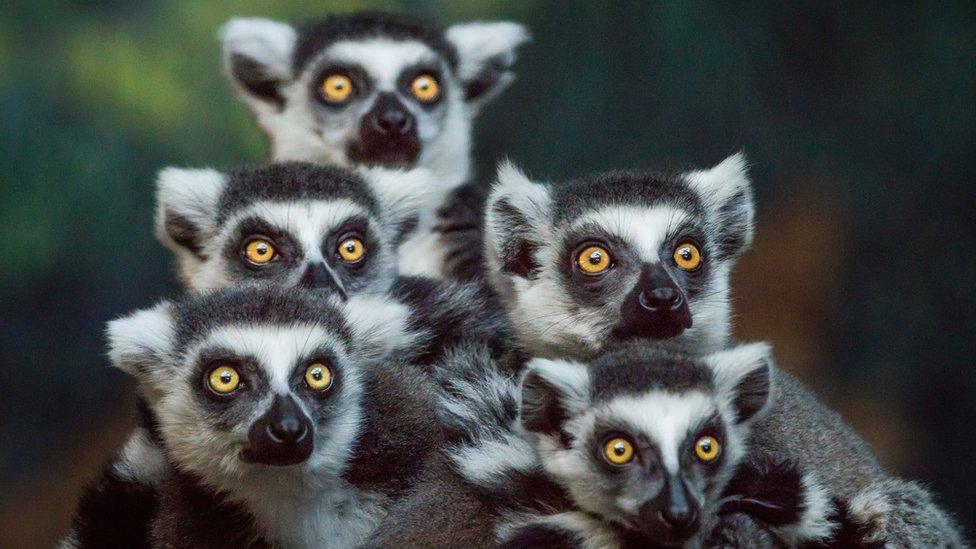Singing animals: Gibbons found to sing together in a similar rhythm to humans
- Published
- comments

Gibbon a tune, we bet they'll be able to sing it!
Harry Styles, watch out - there are some new singing superstars in town!
Scientists have found that a type of ape called a gibbon not only likes to sing, but also like to duet in pairs!
Male and female lar gibbons have been recorded belting tunes together, using synchronised notes in rhythmic patterns.
While you might not find their bangers in the charts any time soon, the researchers found that the way they sing is actually quite similar to humans.
Experts hope this could provide clues as to how we evolved to create and love music.
In sync

Gibbons often mate for life
The way the gibbons sing is called 'isochronous', which is essentially a fancy way of saying 'at the same time'.
The only other primates that have been recorded singing in this way are indris lemurs - do you think they should start a band?
Male and female gibbons use their singing skills to mark our their territory and form close bonds with each other.
They're not monkeys, they're apes - the easiest way to tell the difference is to look for a tail. Monkeys have tails, but apes don't
Gibbons often form lifelong bonds with only one other gibbon, as best mates or as partners
They're incredibly acrobatic, and mainly get where they need to be by swinging through trees, and can move at incredible speeds of up to 35 miles per hour
When they do decide to walk, it's more often than not on two feet, putting their arms above their heads for balance - in fact, gibbons are regularly studied for clues on how humans evolved to walk
Here's one for the Star Wars fans: there are 20 different types of gibbon, including the 'skywalker hoolock', which was discovered in 2017 and named after none other than Luke Skywalker himself!
A harmonious evolution

Gibbons are very sociable, and singing together is a way they form close bonds
The researchers 215 songs recorded from 12 lar gibbons. When they analysed them, they found lots of interesting things:
All the monkeys had excellent rhythm
Males sang with more regular beats during duets than when singing solo
When they sang together, notes would overlap between 16 and 18% of the time
Female gibbons would sing less regularly when their tunes overlapped with male gibbons
Primates are a group of mammals (warm-blooded animals)
Lemurs, monkeys, apes and humans are all primates

Gibbons have extremely long arms and legs that help them swing through trees
Henkjan Honing at the University of Amsterdam said that the gibbons may have evolved to have these skills as a way of matching up their vocal displays when they call to one another.
However, the scientists involved in the study are still unclear as to whether this evolution happened a long time ago, or whether it was a more recent development.
If you cannot see the quiz, click here.
- Published26 October 2021

- Published23 June 2019

